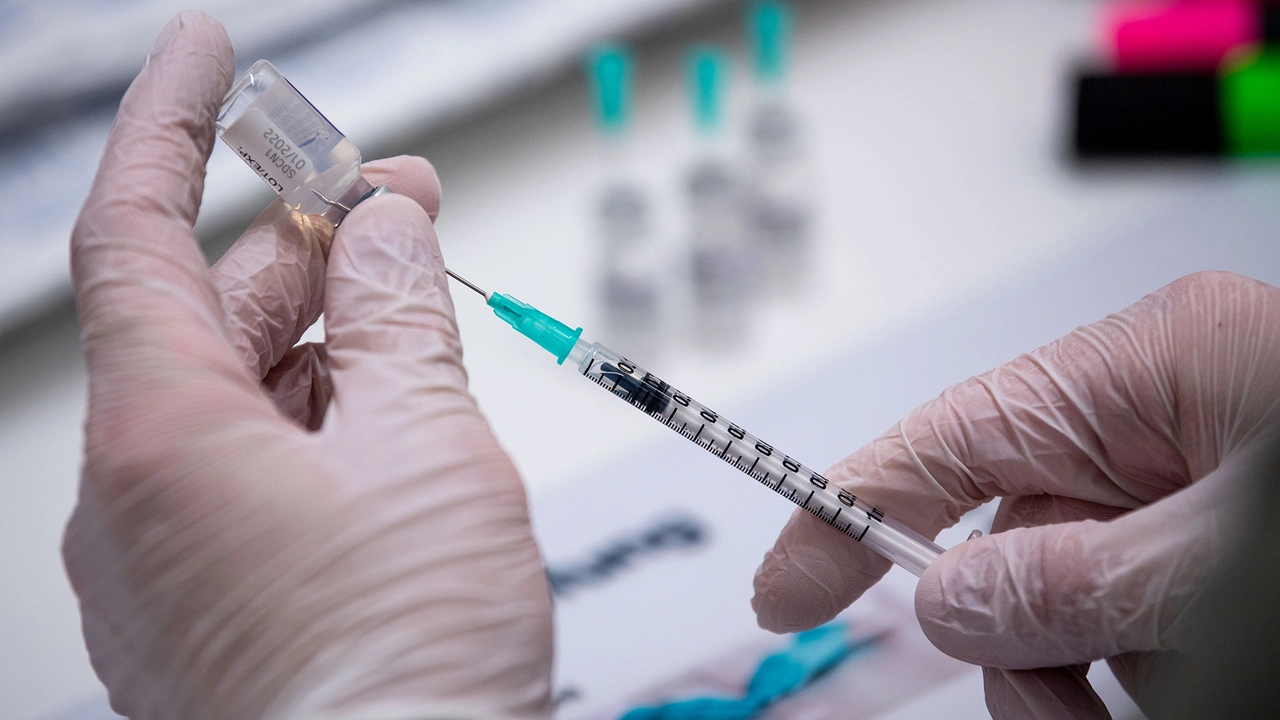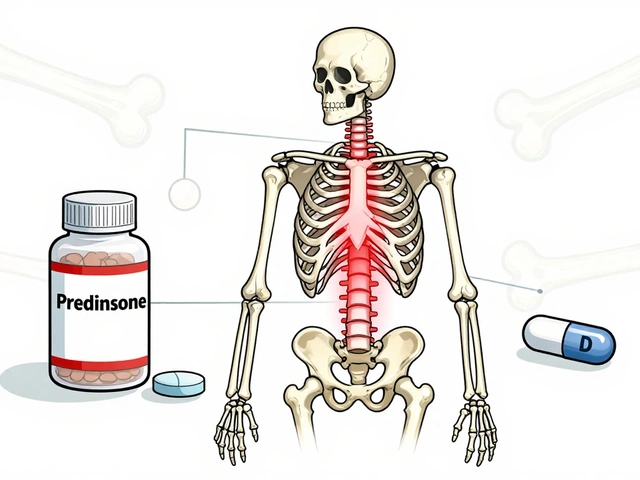Unraveling the Enigma of Parasitic Infections: A Prelude
Before anything else, I feel the need to recount a hilarious moment that occurred a few days ago. My parrot, Oscar, aware of my impending writing assignment, tried to offer his input by academically blackmailing me. Offering my son, Hugo some tips for his biology project, I said, "Hugo, vaccinations prevent parasitic infections." Overhearing me, Oscar saw it fit to repeat the phrase incessantly over the next few days. The funny part is, my beagle Lucy, probably influenced by the constant nag of Oscar's mantra "vaccination prevents parasitic infection", suspiciously started circling around, as if pondering about parasitic infections and vaccinations herself. I guess that's home-based education for you! Anyhow, let's delve into the topic now.
Avoidance is Superior to Cure: The Vital Role of Vaccination
Ah, the beauty of our bodies! It's a complex yet masterfully synchronized system, and in its everyday drama, vaccinations play a pivotal part. They're essentially our covert defenders, the undercover soldiers battling on our behalf on the biological battlefield. They reach places before our immune system could even whip out its GPS. In the context of infections, especially parasitic ones, vaccinations are sent ahead, armed with all the insider information about these nasty parasites looking to crash our inner peace. Vaccinations, my friends, are our body's advanced defense mechanism. Clever, isn't it?
Parasitic infections can range from being minor irritants to life-threatening conditions, and once it turns severe, it's a hard battle to fight. So what's the plan? Prevention! And prevention, in this context, means vaccination. It is better, easier, and less expensive to prevent these infections than to treat them once they take hold. Charlie, an old, wise pharmacist down the street, says, "Be proactive, not reactive." I couldn't agree more, Charlie.
Fighting Off the Invisible Monster: How Vaccines Work
If you've ever wondered how vaccines work, think of them as doppelgängers for disease-causing microorganisms. They make your body believe it's under attack and allows the immune system to swing into action. When the real culprits -- parasites, in this case -- decide to invade, your body is already well-prepared and adept at fighting them off. Much like those practice fire-drills in school, remember them?
Now, remember when I told you about parasites? They are neglected actors and yet they play such influential parts in the drama we call life. The World Health Organization (WHO) states that parasitic infections affect billions worldwide. Vaccines can prevent or mitigate the risk of infection from at least 20 parasites. Imagine the relief of those billions, and the number of lives saved - all thanks to vaccines.
The Obstacles Along the Path: Challenges in Vaccine Development
Creating a vaccine is not as simple as it seems. I wish it were like assembling a piece of IKEA furniture, where all you'd need is a manual, an Allen wrench, and a bit of patience. It's a long journey from laboratory to human—the journey often spanning years, even decades.
Developing a vaccine, especially for parasitic infections, is fraught with immense complexities primarily because parasites replicate inside the host, intracellularly or extracellularly. It's like a game of hide-and-seek where the parasite keeps changing its hiding spot and disguise, thereby increasing the complexity of developing vaccines. Scientists, however, are undeterred, continually pushing the frontiers of vaccine technology. We owe them a debt of gratitude, don't we?
The Horizon Ahead: Advances in Vaccine Research and Development
If science were a bug, I'd say it's got bitten by the progress bug. And I mean that in a good way! One may look at advances in vaccine research and development as the bright ray of hope cutting through the fog of uncertainty surrounding parasitic infections.
Recent strategies in vaccine development involve subunit vaccines, DNA vaccines, and vectored vaccines. Now, those are big terms, and they sound fascinating, even to Oscar! In simple language, they basically mean using different approaches to provoke immunity against parasites, ensuring they are shown the exit door before they can make themselves at home.
In conclusion, prevention is our best line of defense against parasitic infections, and vaccination plays a significant role in this prevention. So let's be proactive, not reactive—let’s vaccinate! And meanwhile, while I appease Oscar, here's to hoping Lucy doesn't go around sniffing for parasites. I’ll just tell them both – “At ease, soldiers!"






Michelle Lyons
Vaccines are just a cover for Big Pharma to track us through microchips in the needles. They don't prevent parasites-they create them. Look at the data. It's all manipulated. 🤫💉
Cornelle Camberos
The assertion that vaccination prevents parasitic infections is not only scientifically unsound, but also a dangerous oversimplification of immunological complexity. One must consider the ontological implications of pathogen mimicry in prophylactic interventions.
joe balak
Parasites are way more diverse than viruses so vaccines don't really work the same way
Iván Maceda
America leads in vaccine innovation. Other countries just copy us. 🇺🇸👏
Vrinda Bali
The global elite are using parasitic vaccines as a tool to depopulate the third world. The WHO is their puppet. Millions are being sacrificed for the new world order. The silence of the masses is deafening.
John Rendek
Vaccines are one of the most effective public health tools we have. Simple. Proven. Life-saving.
Sonia Festa
So you're telling me my dog Lucy is now a vaccine-aware canine philosopher? That's wild. Oscar sounds like a tiny, feathery conspiracy podcaster. I'd binge his podcast.
Amina Kmiha
They don't tell you that vaccines cause more parasitic outbreaks by weakening your natural immunity. They're lying. The CDC knows. The FDA knows. You're being poisoned with aluminum and fetal tissue. 🤢
Ryan Tanner
Love the Oscar and Lucy story. My cat does the same thing when I talk about meds. She just stares. Like she's judging my life choices. 🐱🧠
Jessica Adelle
It is an affront to national sovereignty and moral integrity to promote biological interventions without full parental consent. The erosion of personal liberty under the guise of public health is a slippery slope toward tyranny.
Emily Barfield
If a vaccine is a doppelgänger... then what does that say about identity? If our immune system is fooled into thinking a parasite is present... are we not, in some metaphysical sense, creating the very thing we fear? Is prevention an illusion of control?
Sai Ahmed
You think vaccines work? My cousin in Bihar got vaccinated and still got hookworm. Twice. They're useless. And you're wasting money on this nonsense.
Albert Schueller
vaccines dont prevent parasitic infections. they only work on viruses and bacteria. this article is full of errors. someone should fact check this. its embarassing.
Ted Carr
Ah yes, the classic "parasites need vaccines" pitch. Next you'll tell me we need a vaccine for existential dread. Or bad Wi-Fi. I'm sure there's a patent pending.
Rebecca Parkos
I can't believe people still doubt this. Vaccines save lives. Period. If you're against them, you're putting children at risk. And that's not just wrong-it's cruel.
Bradley Mulliner
The author's anecdotal nonsense about a parrot and a dog is a distraction. This isn't a children's story. It's a public health crisis. The tone is infantilizing. The science is weak. And the references? Barely credible.
Rahul hossain
In developing nations, access to clean water and sanitation remains the primary defense against parasitic infections. Vaccines are a luxury, not a solution. The West romanticizes technology while ignoring systemic neglect.
Reginald Maarten
Actually, the vast majority of parasitic infections-helminths, protozoa, etc.-do not have vaccines. Only a handful, like malaria (still experimental), are even in trials. The article is misleading. You're conflating viral/bacterial vaccines with parasitic immunity. There's a reason why deworming programs still dominate global health. And yes, I checked the WHO database. Twice.